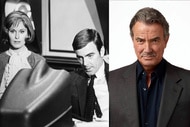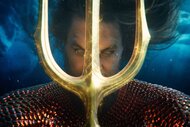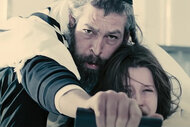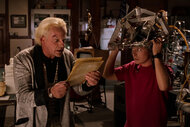Create a free profile to get unlimited access to exclusive videos, sweepstakes, and more!
Exclusive: Danielle Paige, author of Mera: Tidebreaker, on writing her first graphic novel for DC
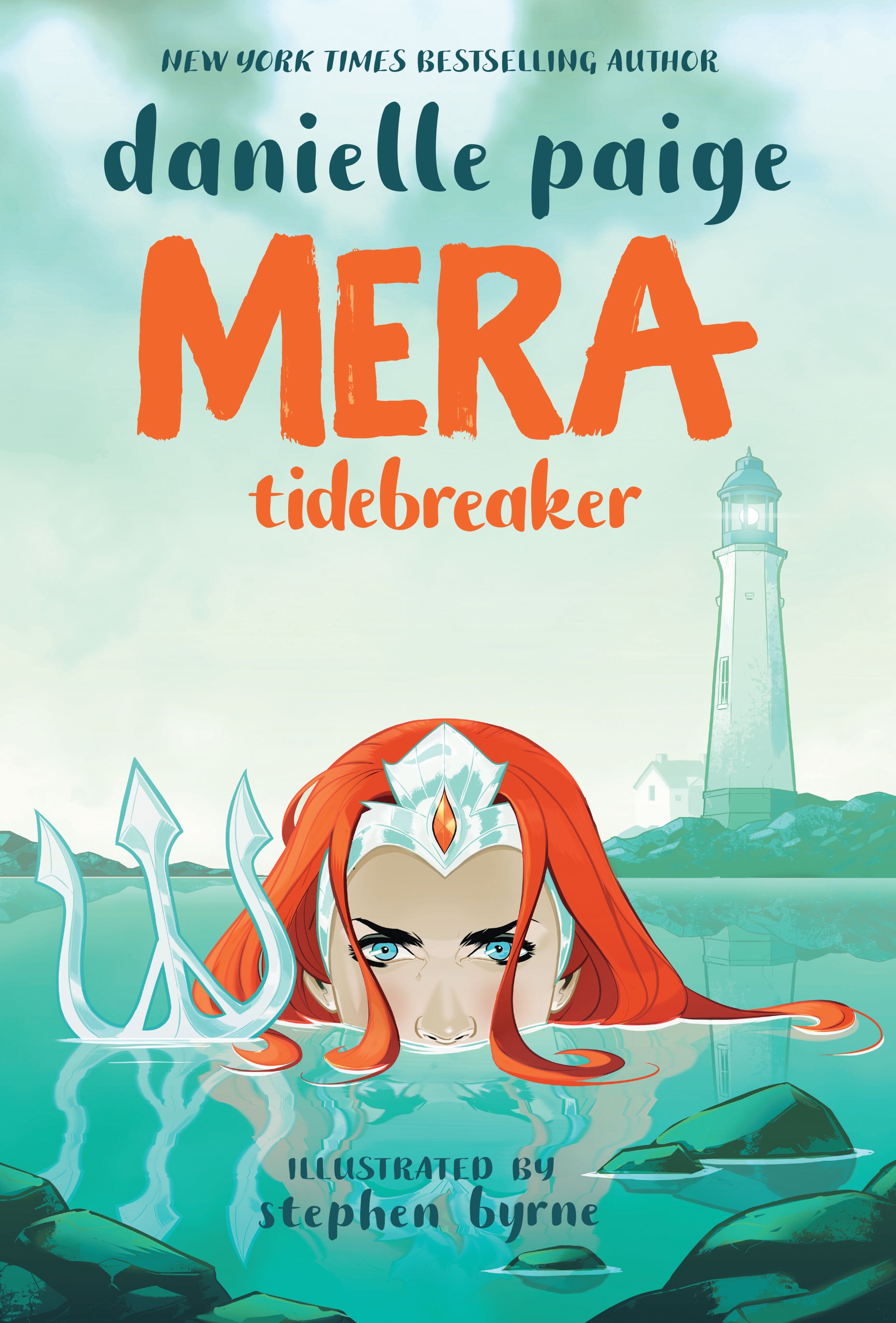
DC’s new young adult publishing line DC Ink launches April 2, 2019, and the first title is Mera: Tidebreaker, written by New York Times bestselling author Danielle Paige. Paige is known for her YA series Dorothy Must Die and Stealing Snow, and this is her first graphic novel.
SYFY FANGRRLS spoke with her about the process of writing for DC Comics and the importance of activism for young people. You can also check out our exclusive look at the story trailer as well as a plot summary for the book below:
“Princess Mera is teenage royalty and heir to the throne of Xebel, a penal colony ruled by Atlantis. Her father and the entire kingdom are expecting her to marry and introduce a new king. But Mera is destined to wear a different crown. The Xebellian military plots to overthrow Atlantis and break free of its oppressive regime, Mera seizes the opportunity to take control of her own destiny by assassinating Arthur Curry — the long-lost prince and heir to the kingdom of Atlantis. But her mission gets sidetracked when Mera and Arthur unexpectedly fall in love. Will Arthur Curry be the king at Mera’s side, or will he die under her blade as she attempts to free her people from persecution? Mera is forced to choose between following her heart and her mission to kill.”
This is your first graphic novel, but you are certainly not a new writer. Can you tell us about the process and how it differs from novel writing?
Well, for me, I started out as a scriptwriter actually. So my very first job, my first writing job was on Guiding Light, the soap opera that's been canceled now. It was 11 years ago and it was my first job out of college. I worked my way up from a production assistant to being a writer there. I wrote scripts for soaps for five years... I come from a writing background, so for me coming to graphic novels, it's actually felt kind of like coming home for me. You write something and then someone else brings it to life. Having an artist do that, [and] he made it a million times better than it was in my head.
Mera is obviously a well-known character, but everyone has their own version of her. What sort of research was there and how did you put your spin on the character?
When I was out in LA and I was reading about Mera, I talked to one of the editors. He knows everything about Mera. He gave me the low down. I had a resource I could ask any questions to. Do I have the powers right? Do I have the history right? I had to make up my own history basically because these books exist outside of continuity, but he told me what I absolutely could not do.
Can you tell us some of those things?
When I first pitched the story, Michelle Welsh from DC came to me when we were at BookCon and we met. I adore her, and we talked about what characters were available because they were starting this initiative. I initially pitched Aquaman, not just Mera, and I pitched Aquaman as The Little Mermaid. I legitimately pitched that the title was Aquaman: A Whole New World. I pitched it as Aquaman coming to land and falling in love with a girl and having to choose between the land and the water. It turns out, and I should know this, but Aquaman is one no-no. You can not have Aquaman grow up under the sea. He always grows up in Amnesty Bay. So, they told me about Mera and how she grew up under the sea and grew up in a colony called Xebel, which is the penal colony on the land actually.
So, she has a contentious back story with his homeland, essentially. She makes the decision to try and kill him in order to protect her own land, or sea, whatever you want to call it. She comes to land wanting to kill him and then basically falls in love with him. It took a big detour from my original story.
Adventure stories often have one missing parent or someone who’s passed to spur them on. How do you feel about that as a story point? In this story, you have the warrior mom who’s passed and someone for Mera to look up to who is really important.
I do think there are fairy tales and comic books, and so many stories involving children. They are young people. It's what spurs the character on, to lose the parent. I think that parents provide a safety net and if you don't have that security you get forced out into the world. So, I think it's a way of pushing young adults or pushing kids into that place. If both of your parents are around, maybe they would stop you from having the adventure that you're going to have in the story.
In the story, Mera's mother is discussed as someone who didn’t have to choose between being a wife and mother, and being a warrior, and that it’s unusual. Can you talk about the importance of having female role models like that?I think more than ever looking at media today, looking at film and television, [and] now in young adult books women, or young girls, have a million examples of Katniss, or Buffy. When I was a kid we did not have that many role models. I feel like seeing it on the page is good for both girls and boys.
I mean, the young adult section when I was a kid? It was minuscule. There was Sweet Valley High and Nancy Drew. Now it's half of Barnes & Noble, which is incredible, and I'm so happy for girls, that they have this many examples. I think that the rest of the world is catching up to that because every summer there's like 20 million male movies and not a lot of girl stars. That's why Wonder Woman was so important. I think that's why Captain Marvel will be so important. I think that now there's less pressure, now that Wonder Woman burst in and worked out wonderfully, that hopefully, Captain Marvel will do well. That will be another feather in women's caps. I'm totally Team DC, but I'm excited about that too.
Mera wants to be seen as “more than a dress.” Can you tell us your feelings on the way young girls are subjected to being seen as one thing or being judged by appearance rather than what’s inside of them?
I think that you grow up, and being called pretty is so important and then it happens; girls are called pretty sometimes before they're called smart. I personally love dresses. I love fashion. I think it's a great way to express yourself, but I do think that there's so much pressure put on how girls look and I think if we start with what's on the inside instead of what's on the outside, then that's the way I hope girls get to see themselves first.
These days we’ve been seeing a move away from love stories, though love stories are a part of most people’s lives. What is your take on doing sort of a feminist love story?
[When you're] a teenager, one of the things you're learning, is you're probably falling in love for the first time. I think that who you choose is part of you deciding who you want to be. So figuring out who you love and why you love them and what you feel is so important. I don't want to leave that out of stories because we're just telling power stories now. It's part of the teen experience, it's part of the grown-up experience and just learning who you are. Sometimes you make the right choices and sometimes the wrong choices, but I like to see that on the page too.
Another thing that stands out in the story is teenage activism, which has been in the news a lot lately. Why did you want to include that in the story?
When I wrote the first chapter I actually had a party scene as my opening scene. My editor called me and said, "Something about the opening doesn't feel right." It was just Mera sneaking out to go to a party because that felt very teen-sy. I wanted to show what it feels like, [that] another part of being a teen today is actually experiencing what's going on in the world and trying to figure out how you can respond to that. Looking at the politics today, when I was writing it was actually around the time of Parkland, and watching those teens stand up for themselves... I had that moment of, well, this is what kids are doing now. We want kids to have a voice and part of figuring out who you're going to be is [learning] how to express yourself in the world. I mean it's their world too.
What do you want people to take away from this story?
Growing up, I never imagined that I could write for DC Comics. It was just not on my radar. I loved the movies. I was obsessed with Lois Lane and Batman. I love those stories, but as a writer, I never thought I had a place there. It just did not occur to me. I think my take away is that a girl of color can write a story for DC, and that means the world to me. I hope that kids, other kids that want to be writers know that the DC world and the comic book world is opening up in a way that there's a place for everyone. With the story itself, I think it's the eternal story of deciding identity. Deciding who you want to be. It's you figuring out that moment of choice. How can you be a hero in your own life, and what does that look like?
Do you have plans for more projects with DC?
I do. I hope. I've got some stuff we're figuring out but I would love to. I hope it works out. I really do want to do more.
This interview has been edited and condensed.






